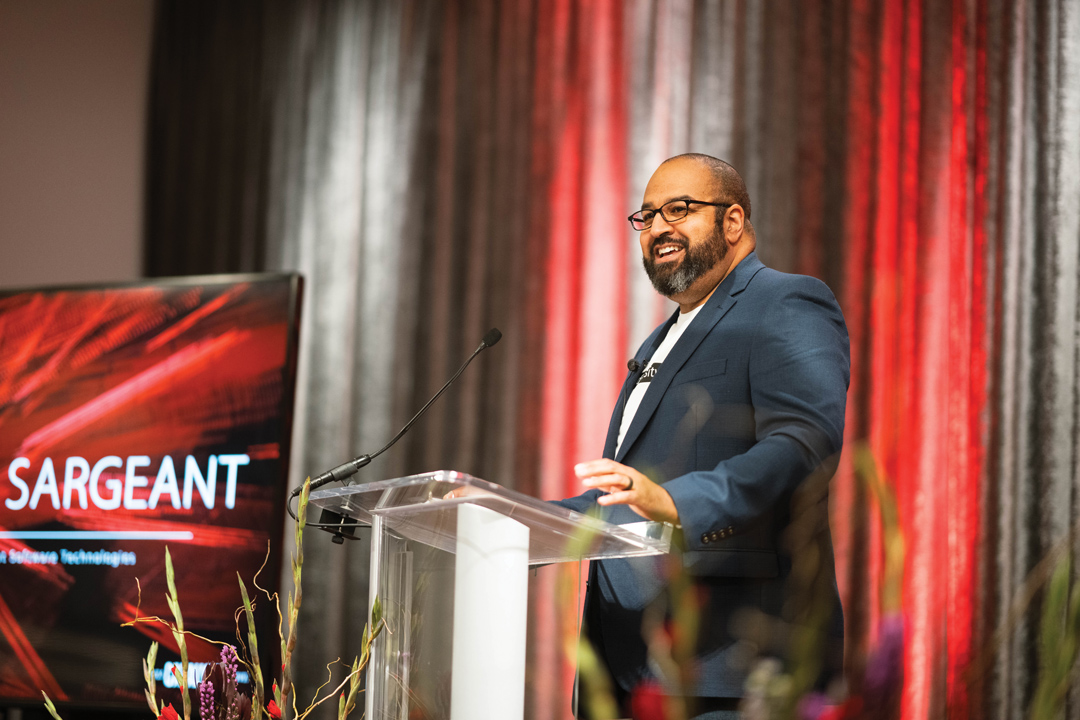Q&A with Tracy Jon Sargeant
By Lisa Rossi
It wasn’t until Tracy Jon Sargeant’s junior or senior year in high school in the small town of Black Creek, Wis., that he first had access to a computer.
“There were socioeconomic barriers that contributed to me growing up in a household without access to technology,” he said. “And certainly our school system at that time did not make that investment.”
That experience sticks with him today as a cybersecurity engineer and founder of the Multicultural Development Center of Iowa.
Sargeant said he has a “shared lived experience” with people who grew up in homes without access to technology, a source of inspiration for him in his role at MDC Iowa to remove barriers to provide equitable access to technology.
The following is an edited and condensed interview with Sargeant.
What are the barriers that people of color are facing when it comes to entering tech careers?
Most people, if you look at the statistics, will say we don’t have a pipeline problem. We have more people of color entering STEM degree pathways than we ever have before. But I think we need to look deeper at those numbers, and I think you’ll find they may be entering the field, they may be even graduating, but that conversion from getting a degree to getting a career is still a challenge.
How do organizations benefit from having a more diverse workforce?
When you bring a diverse group together, you benefit from those lived experiences. Creating a diverse group will help you with some of that product development. It’s been proven to increase productivity and innovation. From a go-to-market strategy, you will have a more compelling product or service that resonates with a larger customer base when the people behind the development of that represent the community that you hope to serve.
Do you have new tech programming that you are offering at the Multicultural Development Center of Iowa?
Two years ago, we launched our BIPOC Business Accelerator, which is really geared toward addressing a more inclusive economic development ecosystem. We want more Black and brown entrepreneurs and small businesses. Specific to STEM, we are very excited about our focus on creating the future workforce, so we really have a focus on skills that are going to be required for jobs of the future.
So one of the programs we are going to reintroduce after taking a little bit of a break is all-around robotics, artificial intelligence and machine learning. And it’s not just technology, we want to make sure kids understand the ethical obligation we have when we utilize technology like that. So we talk about the ethics, the morality around this AI and machine learning we’re using and create that foundation. All that gets wrapped together in a self-driving car project.
What progress do you want to see in education in terms of those who are underrepresented in tech careers?
We want to make sure that no student of color goes through our public school system and is not encouraged to pursue a STEM degree or career. A lot of what we try to do is just provide that representation. I’ve often said young people of color cannot be what they cannot see. But really at the end of the day, what we want all of this to accomplish and the impact we want to have is to see a dramatic increase in the number of people of color that are entering the STEM workforce.
Lisa Rossi is a freelance contributing writer.
